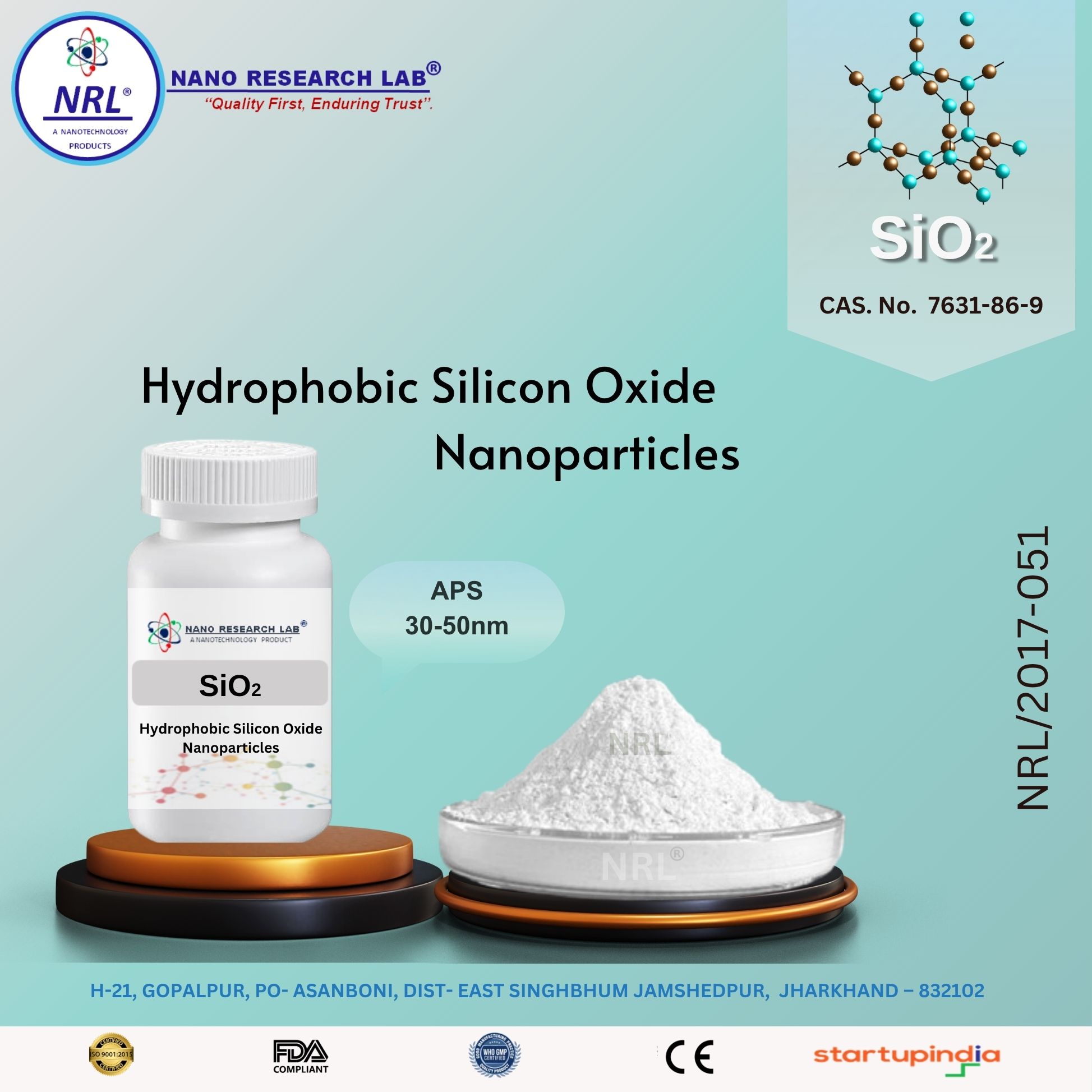
Silicon Oxide Nanoparticles/Nanopowder Hydrophobic (SiO2, 30-50nm, purity 99.5%)
₹1475.00
Hydrophobic Silicon Dioxide Nanoparticles / Nanopowder (SiO₂, 30–50 nm, Purity 99.5%)
Technical Specifications
Property | Specification |
|---|---|
Chemical Name | Silicon Dioxide (SiO₂, Hydrophobic) |
CAS Number | 7631-86-9 |
Molecular Weight | 60.08 g/mol |
Purity | ≥ 99.5% |
Appearance / Color | White Fine Powder |
Particle Size (Average) | 30–50 nm |
Morphology | Nearly Spherical / Agglomerated Nanoparticles |
Surface Property | Hydrophobic (Surface-treated) |
Specific Surface Area (BET) | 120–160 m²/g |
Density | 2.2 g/cm³ |
Melting Point | 1710 °C |
Boiling Point | Sublimes above 2230 °C |
Solubility | Insoluble in water; soluble in hydrofluoric acid |
pH (in aqueous suspension) | ~5–7 |
Stability | Chemically stable; non-hygroscopic under normal conditions |
Key Features
High Purity (≥ 99.5%) ensures excellent chemical and physical performance.
Nanoscale Particle Size (30–50 nm): Provides high surface area and excellent dispersion properties.
Hydrophobic Surface: Modified for water repellency and improved compatibility with non-polar systems.
Spherical Morphology: Promotes uniform dispersion in polymers, liquids, and composites.
White Fine Powder: Easy to handle, mix, and incorporate into formulations.
Thermally Stable: Suitable for high-temperature and electronic applications.
Enhanced Surface Reactivity: Surface-treated for specific applications in coatings and composites.
Applications
1. Hydrophobic Coatings & Paints:
Used in water-repellent coatings, paints, and varnishes to improve surface properties.
2. Polymer & Nanocomposites:
Enhances mechanical properties, thermal stability, and hydrophobicity in polymer formulations.
3. Electronics & Insulation:
Applied in dielectric materials, electronic coatings, and hydrophobic insulation layers.
4. Cosmetics & Personal Care:
Used as a matting agent, anti-caking agent, and texture enhancer in hydrophobic formulations.
5. Silicone & Rubber Applications:
Acts as a reinforcing filler in silicone, rubber, and elastomers to improve water resistance and mechanical properties.
6. Research & Nanotechnology:
Suitable for hydrophobic nanocomposite studies, advanced material research, and functional coatings.
